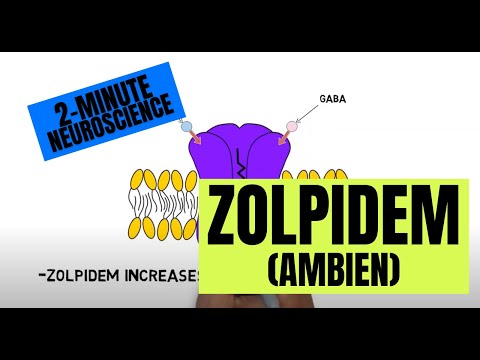- Subjects: Neurosciences
- |
- Contributor:
- Neuroscientifically Challenged
- COVID-19
- neurological symptoms
This video is adapted from: https://www.youtube.com/watch?v=_64LqTeiawE
COVID-19 is associated with a wide range of neurological symptoms. In this video, I discuss current hypotheses that attempt to explain how SARS-CoV-2 (the virus that causes COVID-19) affects the brain. [1][2][3]
TRANSCRIPT:
Although COVID-19 is generally considered a respiratory illness, it is associated with a wide range of symptoms, a number of which involve the nervous system. These neurological symptoms range from very common symptoms such as disturbances in smell and taste, to complications such as confusion, impaired consciousness, and stroke. Additionally, some patients develop long-term symptoms that involve the nervous system, such as headaches, depression, and impaired concentration. These symptoms can last well after a COVID infection, and are part of a condition sometimes referred to as long COVID.
At this point there is still uncertainty about how SARS-CoV-2, the virus that causes COVID-19, leads to neurological symptoms. Initially, it was suspected that the virus might enter the nervous system through one of several potential routes such as through the olfactory nerve or across the blood-brain barrier. Studies so far, however, have found very low levels of virus in the brain and cerebrospinal fluid, suggesting that the virus migrating to the brain and infecting brain cells may not play the primary role in causing the neurological effects of COVID-19.
There is, however, evidence of a robust immune response to SARS-CoV-2 in the brain. Thus, one hypothesis is that this immune reaction and the associated inflammation that occurs may interfere with brain function and potentially damage neurons, resulting in neurological symptoms. SARS-CoV-2 is also known to damage blood vessels and impair vascular function, and thus issues such as microscopic blood clots and disruptions of blood supply may be responsible for neurological symptoms as well. Additionally, studies have found changes in brain structure after COVID-19 infection and altered metabolic activity in the brains of people with Long COVID. These neurological changes might contribute to long COVID symptoms, although the underlying mechanisms are still unclear.
- Al-Sarraj S, Troakes C, Hanley B, Osborn M, Richardson MP, Hotopf M, Bullmore E, Everall IP. Invited Review: The spectrum of neuropathology in COVID-19. Neuropathol Appl Neurobiol. 2021 Feb;47(1):3-16. doi: 10.1111/nan.12667. Epub 2020 Oct 20. PMID: 32935873.
- Boldrini M, Canoll PD, Klein RS. How COVID-19 Affects the Brain. JAMA Psychiatry. 2021 Jun 1;78(6):682-683. doi: 10.1001/jamapsychiatry.2021.0500. PMID: 33769431.
- Spudich S, Nath A. Nervous system consequences of COVID-19. Science. 2022 Jan 21;375(6578):267-269. doi: 10.1126/science.abm2052. Epub 2022 Jan 20. PMID: 35050660.


























































































































































